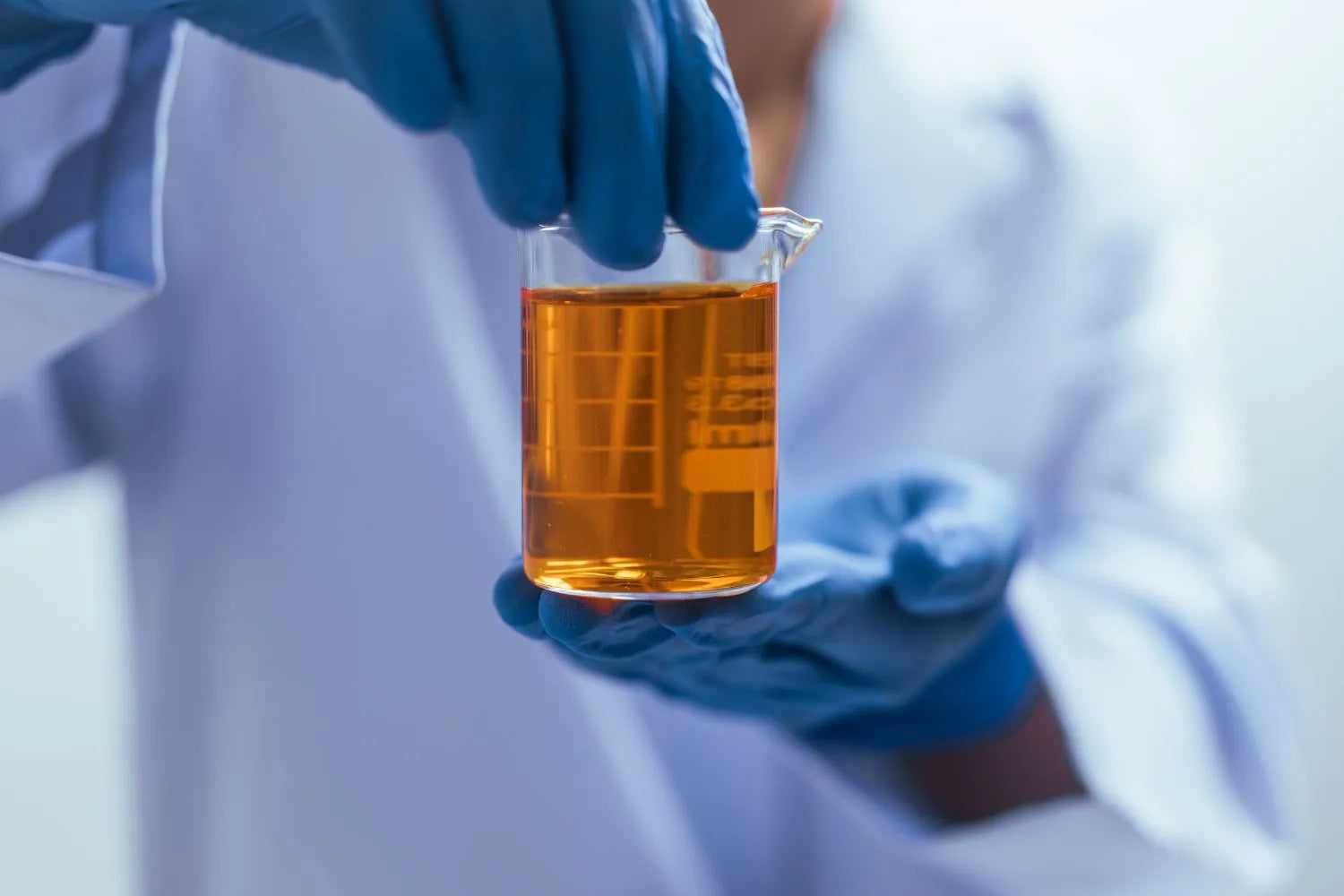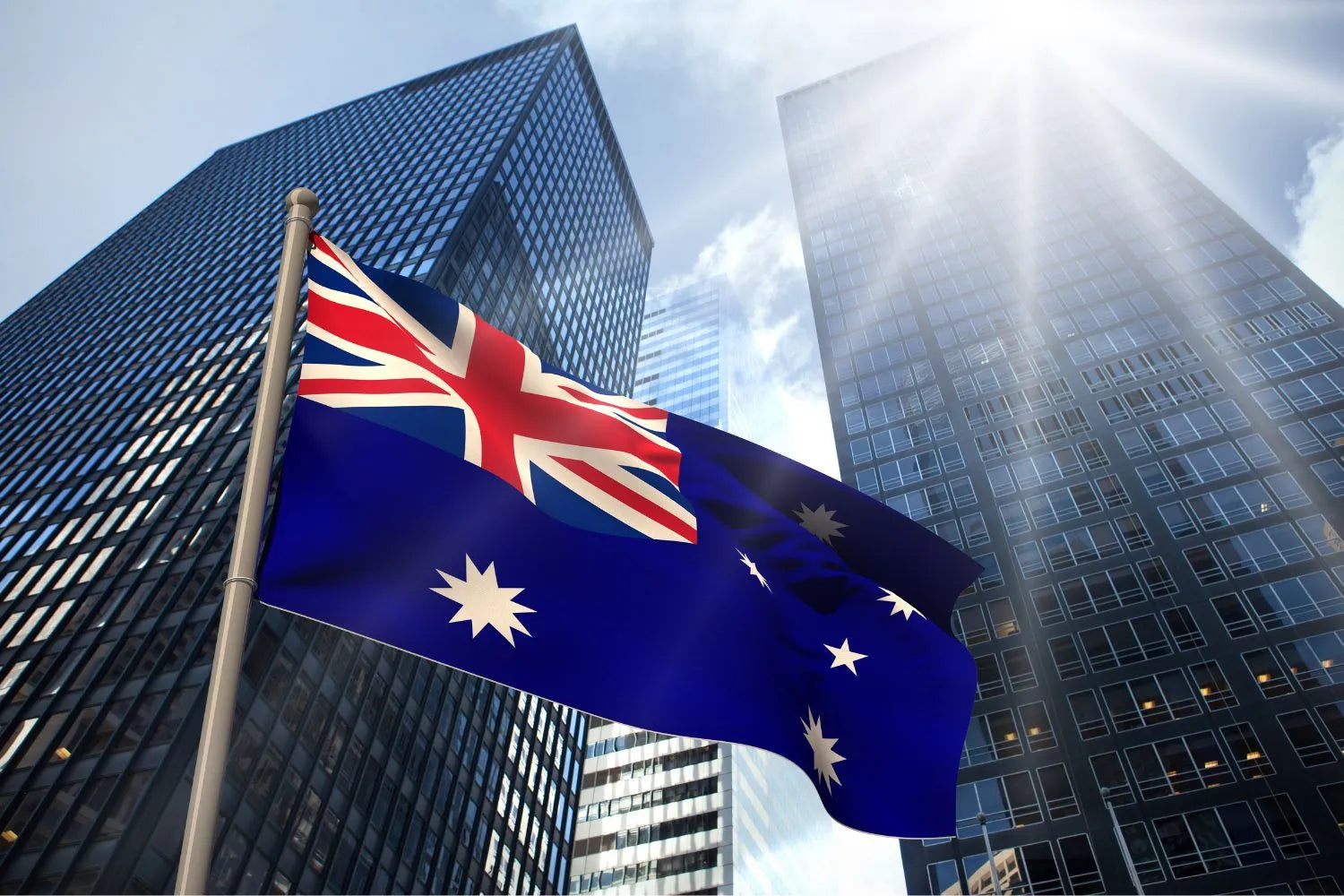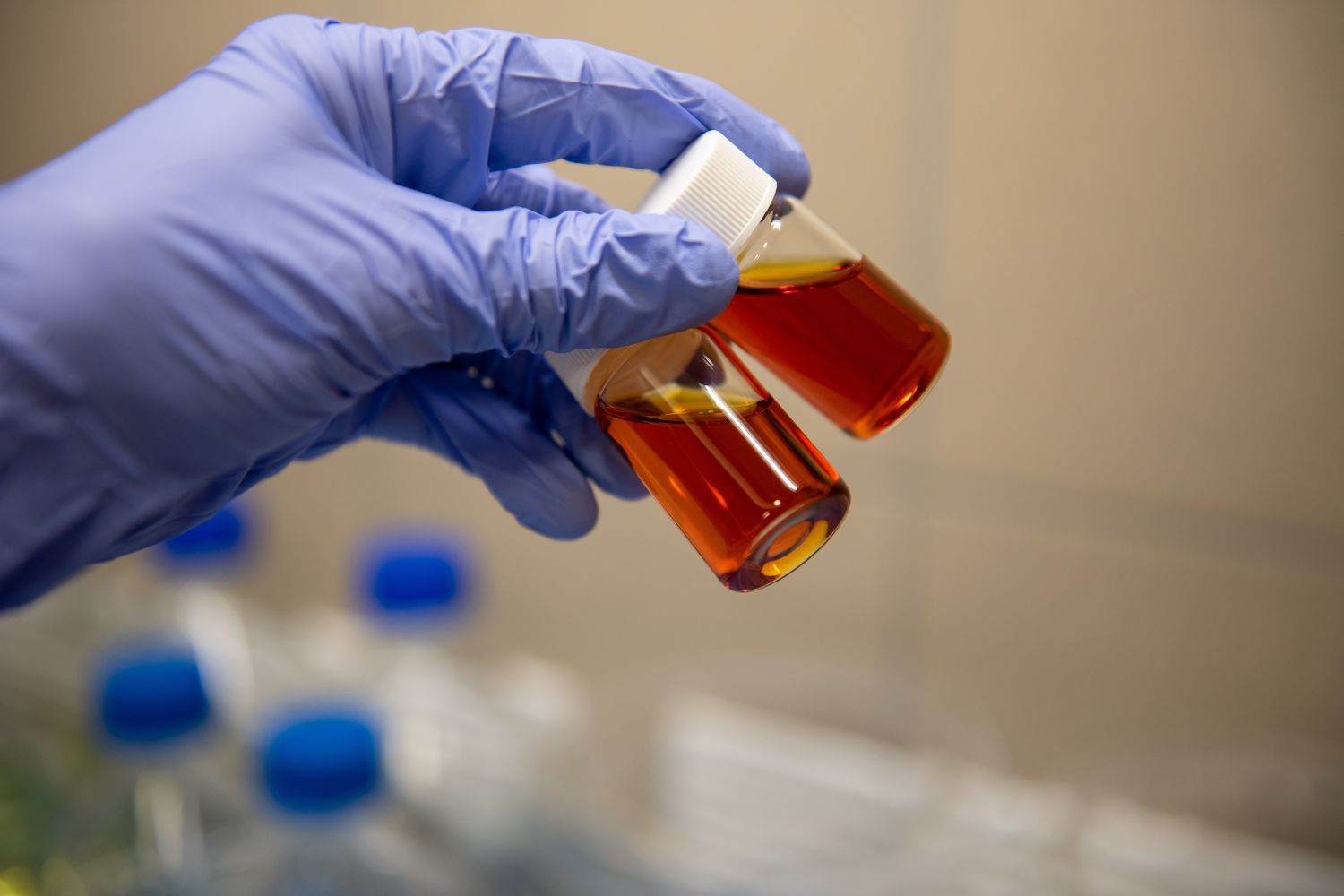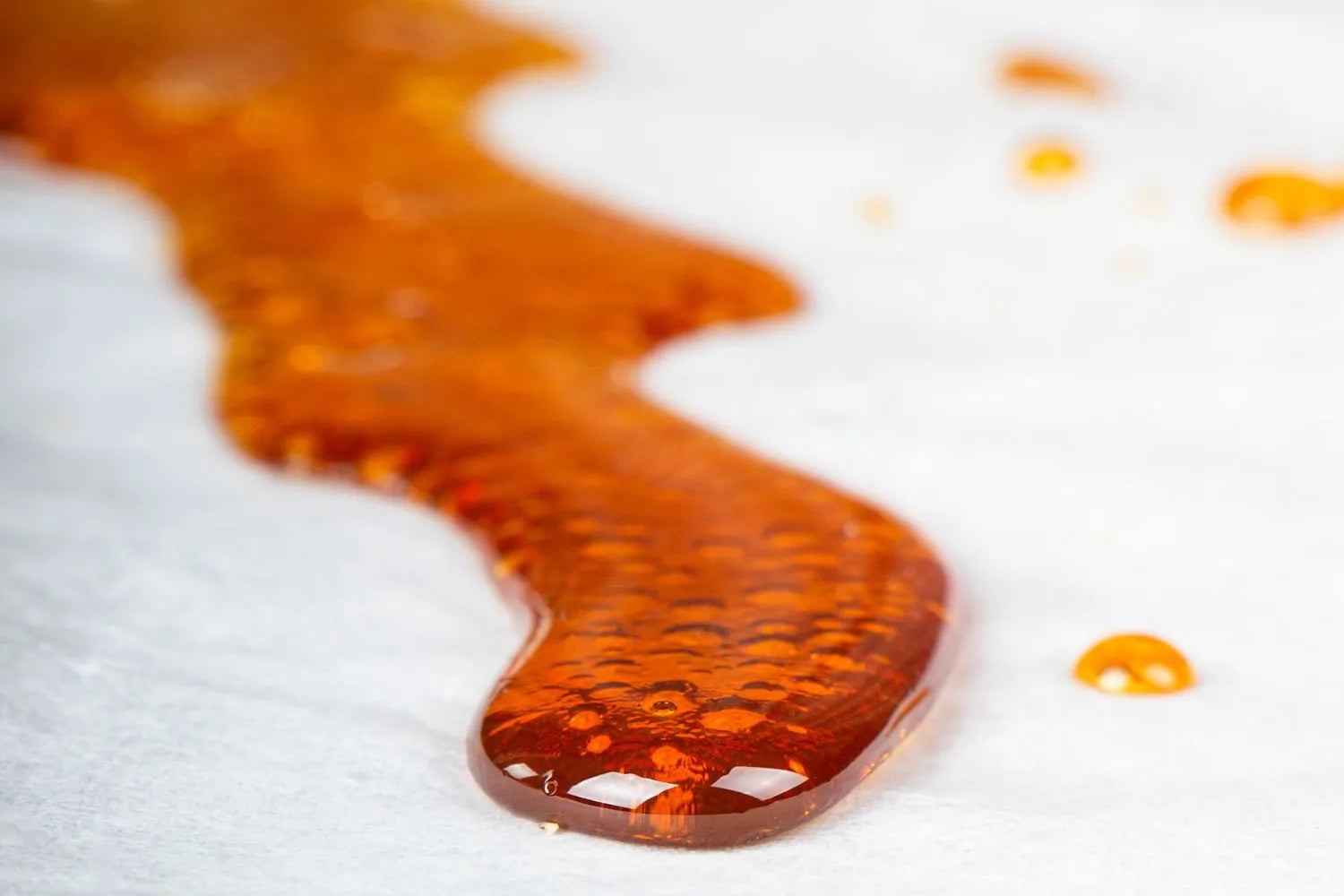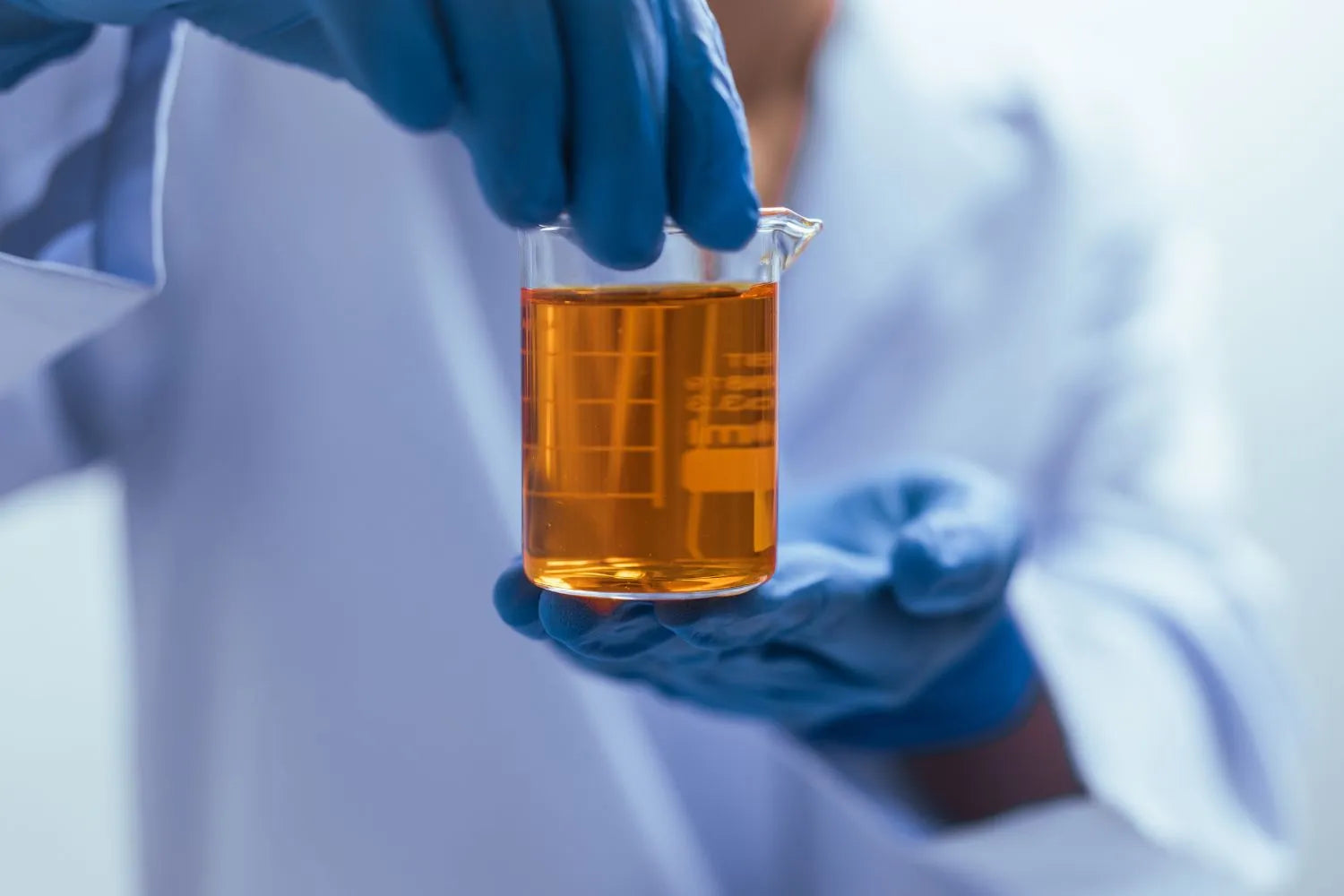THC-P is one of over 100 cannabinoids in the cannabis sativa L. plant species. But despite its similarity to delta-9 THC (the most abundant cannabinoid in "marijuana" cultivars), THC-P can't simply be extracted from actual cannabis flower.
This, of course, raises concerns. After all, natural cannabis plants can't offer the same potency as a THC-P product. But the risks are still relatively unknown.
With THC-P hitting the supplement world by storm, it might not be long before the product reaches the shelves of licensed cannabis dispensaries in the U.S. and (possibly) Canada.
At the same time, many laypeople are hopeful about THC-P. Aside from the recreational experience, THC-P may offer new therapeutic benefits due to its highly intoxicating psychoactive properties.
Multiple THC analogs with different psychotropic effects already exist, like delta-8 THC and THC-O.
But it's safe to say that something as (allegedly) potent as THC-P is unprecedented in the cannabinoid supplement world. With a substance like this, it's critical to "look before you leap."
So, what is THC-P? How does it work? Is THCP legal, reliable, or safe? And ultimately, are the potency claims true or just clever marketing?
Let's take a look at these (and many other) questions to see if THCP is right for you.
What is THC-P?
Tetrahydrocannabiphorol ("THC-P" or "THCP") is a highly potent psychoactive cannabinoid with intense psychotropic effects.
Found naturally in "marijuana" (cannabis plants with over 0.3%) and "hemp" (containing less than 0.3% THC) cannabis plant cultivars, no existing marijuana strains or hemp-derived supplements have much THC-P.
Popular hemp-derived cannabinoids, like THC-P and delta-8 THC, exist as natural biochemical substances. But both share two things in common.
First, neither of those cannabis plant compounds exists beyond trace amounts in any cannabis cultivar.
Second, both can be synthesized from naturally hemp-derived CBD - the most abundant cannabinoid in federally legal "hemp" cannabis.
Some vendors claim THC-P is 33 times more potent than delta-9 THC. However, this is most likely an exaggeration. Nonetheless, it's important to understand the mechanics of cannabinoids before examining THC-P.
The Endocannabinoid System and Cannabinoid Receptors
Several hemp-derived cannabinoids, such as CBG, CBN, CBC, THCV, and CBDV, are available as supplements from federally legal hemp plants. While many are nearly identical, their effects vary based on which specific receptor pathways they bind to.
Before we explain THC-P's potency and effects, it's important to understand how cannabinoids work and interact with our bodies.
There are two categories of cannabinoids:
- Endocannabinoids (made naturally in our bodies)
- Phytocannabinoids (exclusively in cannabis plants)
Endocannabinoids are neurotransmitters within our bodies that carry chemical messages through nerve cells as needed. These compounds regulate many critical functions, including digestion, immunity, pain, inflammation, appetite, nausea, sleep, and mood.
These compounds maintain "homeostasis," a state where the body's functions remain balanced. But illness, injury, and a slew of other problems can interrupt homeostasis.
At this point, endocannabinoids bind to specific receptors in the affected area, acting like an alarm or signal that something is off-balance.
These receptor pathways - known as CB1 and CB2 - are found in the central and peripheral nervous systems, respectively. An endocannabinoid called anandamide (a.k.a. the "bliss molecule") has a strong affinity for both CB receptors. THC and anandamide share a very similar chemical structure. In turn, THC also binds to the CB1 and CB2 receptors.
While THC has physical effects due to its interaction with the CB2 pathways, its affinity for CB1 lets delta-9 and related analogs trigger a "high." Very few cannabinoids bind to the CB1 variants, while even fewer are strong enough (or at all) to cause cognitive impairment.
Chemical Structure of THC-P
We'll need a short primer on how THC-P compares to delta-9 ("traditional THC"). Both compounds have similar atomic formulas and chemical structures.
However, the two differ in one key area. Delta-9 and THC-P both have atomic carbon chains. However, THC-P has a longer alkyl side chain, with seven carbon atoms, while delta-9's chain contains five.

This structural difference created by those seven carbon atoms - however minor - significantly affects both cannabinoids' affinities for the CB1 and CB2 receptors.
How Strong is THC-P?
Some sources claim THC-P is up to 33 times stronger than the intoxicating effects of traditional THC. While this news may excite recreational consumers and people seeking therapeutic benefits from THCP products, we shouldn't accept this claim at face value.
The origins of the potency myth come from a 2019 study in Scientific Reports by City et al. As we mentioned, THC's psychoactive effects and intoxicating properties depend on its affinity for the CB1 receptors in our central nervous systems.
According to the study, THCP binds with the same endocannabinoid receptors as several (but not all) other cannabinoids, like delta-9 THC. However, the former's affinity for the CB1 receptor is 33 times stronger than its counterpart. Additionally, the study found that THC-P's attraction to the CB2 pathways was ten times greater than delta-9's.
But just because it binds 33 times as strongly to the central nervous system's pathways doesn't mean THC-P will get you 33 times as high.
First, feeling "high" is a relative term. People experience cannabis intoxication at different degrees and doses.
The same hemp-derived cannabinoids can affect people differently.
Second, human receptors - especially relatively unexplored cannabinoid receptors - aren't carbon copies from one person to another. Physical and biochemical factors impact a person's THC tolerance and psychoactive effects.
Finally, the host plant's chemical composition introduces other cannabinoids and terpenes, adding unique effects.
In short, we can't accurately quantify the strength of THC-P, only its ability to interact with cannabinoid receptors. Anyone making precise potency claims about THC-P, delta-8 THC, and other hemp-derived products - or their potential therapeutic benefits - is dishonest.
Does THC-P Get You High?
Yes, THCP products will get you high. Again, due to THCP's chemical structure, THCP interacts 33 times more strongly with the CB1 receptors in our central nervous systems.
Although it likely won't feel 33 times stronger, the THC-P's effects will be substantially more intense than delta-9 THC.
As we all know, becoming too high can be unpleasant and potentially dangerous. Anyone considering THC-P should be fully aware of the new cannabinoid's physical effects and psychotropic properties.
What are the Effects of THC-P?
Unsurprisingly, the effects of THC-P mirror those of delta-9 THC and delta-8 THC. Although THCP affects everyone differently, its potent effects appear to include the following:
- Dizziness
- Euphoria
- Relaxation
- Focus
- Sedation
- Creativity
- Increased appetite
Again, these effects are also reported by delta-9 and (to a lesser extent) delta-8 THC consumers. However, even seasoned users may not be ready for THCP products.
What are the Side Effects of THC-P?
Like traditional THC, THC-P can trigger various side effects similar - if not identical - to its naturally abundant cousin.
THCP's side effects haven't been documented or studied. Still, we can assume that the cannabinoid's stronger physical and psychoactive effects can also lead to amplified adverse events.
Some possible consequences of THC-P consumption are:
- Sleep disturbances
- Nausea
- Vomiting
- Dry mouth
- Heart rate changes
- Severe dizziness
- Strong paranoia
- Intense anxiety
What are the Benefits of THC-P?
Considering the many medical applications of delta-9 THC, it's logical to assume that THC-P could offer benefits. However, no research exists supporting the potential therapeutic benefits of THC-P.
But considering the mechanism of action is virtually identical to delta-9 THC, THC-P could be useful for:
- Pain
- Inflammation
- Sleep
- Nausea
- Appetite stimulation
- Mood control
How Long Does THC-P Stay in Your System?
While no scientific experiments exist to answer this question, unofficial sources are surprisingly consistent. Based on independent observations, THCP can stay in your system for two to 30 days.
Biochemical and physical factors dictate metabolism. Consistent users will need more time to rid their systems of cannabinoid metabolites.
Is THC-P Synthetic?
THC-P is synthetic when consumed as a hemp-derived cannabinoid product. However, THC-P is an organic cannabinoid. Its presence in cannabis is too tiny for selective cultivation, so artificial synthesis is necessary.
To achieve this, manufacturers use a natural THC cannabinoid isomer, like THC-Free CBD, making alterations to transform the comparatively inert cannabinoid into psychotropic THC-P.
THC-P vs THC (Delta-9 THC)
We've discussed THC-P and delta-9 THC. It's impossible not to, considering delta-9 is the baseline from which we compare all psychotropic cannabinoids.
To recap, THC-P and delta-9 THC have affinities for the CB1 and CB2 cannabinoid receptors. THC-P's molecular structure makes it 33 times more attractive to the CB1 pathways than delta-9 THC.
THC-P vs THC-H
THC-H (tetrahydrocannabihexol) shares some structural similarities with THC-P. Both are homologs of delta-9 THC. This means they share similar compositions and molecular structures with delta-9.
But while THC-P has seven carbon atoms and delta-9 has five, THC-H's chain consists of six atoms.
THC-H likely has a stronger receptor affinity than delta-9 but weaker than THC-P.
However, no data exists to quantify THC-H's effects.
THC-P vs THC-B
THC-B (tetrahydrocannabutol) is a naturally-occurring trace cannabinoid. Structurally, the most significant difference is that THC-B has a four-carbon atom alkyl side chain.
Despite the shorter chain, something about THC-B makes CB1 receptors more responsive to it, but research into its effects is virtually non-existent.
Is THC-P Legal to Buy and Sell?
Yes, THC-P is legal to buy and sell at a federal level. Congress legalized hemp cultivars and their products through the 2018 Farm Bill. The typical interpretation is that, since THC-P is a hemp-derived cannabinoid, then any associated products are protected by the Farm Bill.
However, the United States considers THC analogs to fall under Schedule I of their list of controlled substances.
As of the writing of this article, THC-P is legal to buy and sell, but check the laws in your state, as these are constantly evolving.
Is THC-P Safe to Take?
Initial research into THC-P is sparse. THCP's enhanced binding affinity to the CB1 and CB2 cannabinoid receptors makes this intoxicating cannabinoid's physical effects and cognitive benefits worth exploring. But realistically, we don't know if THC-P is safe to take, let alone any potential therapeutic effects.
Combine that with the fact that this newly discovered cannabinoid might not be federally legal for much longer, and it's a reason to give pause.
That being said, anecdotal evidence suggests that THC-P is popular and well-received. But considering its synthetic nature, we can assume with relative certainty that the product poses risks.
Ways to Consume THC-P
Vendors have adapted THC-P for consumption in all forms. Each has a set of benefits and drawbacks, so choose the one that suits your needs.
Oils
THC-P oils contain a precise dosage of the cannabinoid in each bottle. Using a pre-measured dropper, consumers consume the THCP extract sublingually.
Oils are advantageous because a portion of the cannabinoid is absorbed through the mouth. The effects can last between six to eight hours once the body finishes digesting the psychoactive compound.
However, ingestible oils can take 45 minutes to three hours before individuals feel the effects.
Capsules
Capsules or softgels are virtually identical to oils. They're the same ingestible extract THC-P products but conveniently pre-dosed in capsules.
Like oils, the effects are long-lasting. Unfortunately, capsules don't offer the benefit of absorption through the mouth. Consequently, consumers won't experience any effects until digestion is complete.
Edibles
Edibles cover a broad range of THCP products. But gummies, chocolate, and baked goods are all classics. However, new advancements in cannabinoid emulsion opened the door to delicious CBD and THC beverages.
Most edibles suffer from the same disadvantages as capsules. But beverages are an exception. Cannabinoids have to be made water-soluble to mix into drinks. The compounds are no longer repelled by water (as is their normal state) but instead absorbed through any water-based pathway.
As a result, beverages take effect in as little as 15 minutes.
Vaporization
Vape cartridges and disposable pens are available through hemp supplement vendors and licensed cannabis dispensaries.
A concentrated amount of smokable cannabis extract, such as synthetic or organic THCP, is heated through an atomizer coil and absorbed through a cotton wick.
Rather than combust, the hemp-derived cannabinoids evaporate into inhalable vapor. This method carries less hydrocarbons, toxins, and irritants than conventional smoking. Inhalation also provides nearly instant effects, although the duration is around two to four hours.
Vaporized THCP products also offer the best bioavailability. This means more THCP and other cannabinoids you consume get used by your body.
Smoking
Smoking cannabis predates much of human history. But while it's a reasonably acceptable way to consume THC or CBD, THC-P flower doesn't exist due to its impossibly low presence in cannabis.
However, some producers coat or infuse legal hemp flower with THC-P extract so that it can be consumed in joints, pipes, or bongs.
Although smoking offers the same quick feedback as vaping, it's not nearly as bioavailable and can harm your lungs.
Will You Fail A Drug Test After Consuming THC-P?
Yes, it's possible (if not guaranteed) to fail a drug test after consuming THC-P. Many people mistakenly believe that drug tests look exclusively for delta-9 THC metabolites.
Realistically, the tests seek out a specific THC enzyme left behind after the effects are long gone. This enzyme exists in THC-P as well.
Conclusion: What is THC-P?
Nobody fully understands what THC-P is. For some, it's a door to intense recreational effects, while others see potential therapeutic value.
Whatever your motivation, be cautious when approaching new cannabinoids, especially psychotropic ones like THC-P.
Hopefully, future examinations will help us better understand and more safely produce THC-P and its many related products.

